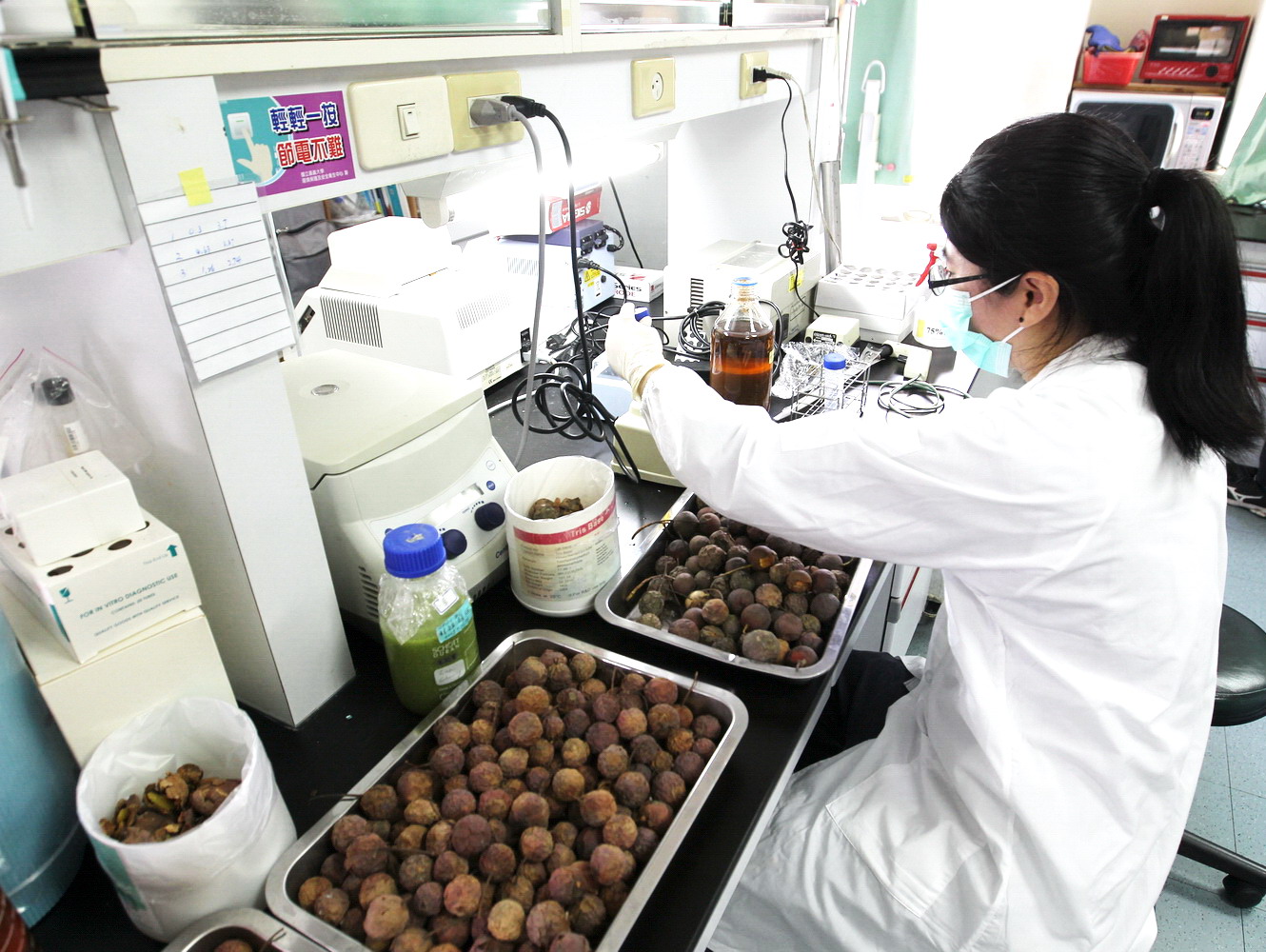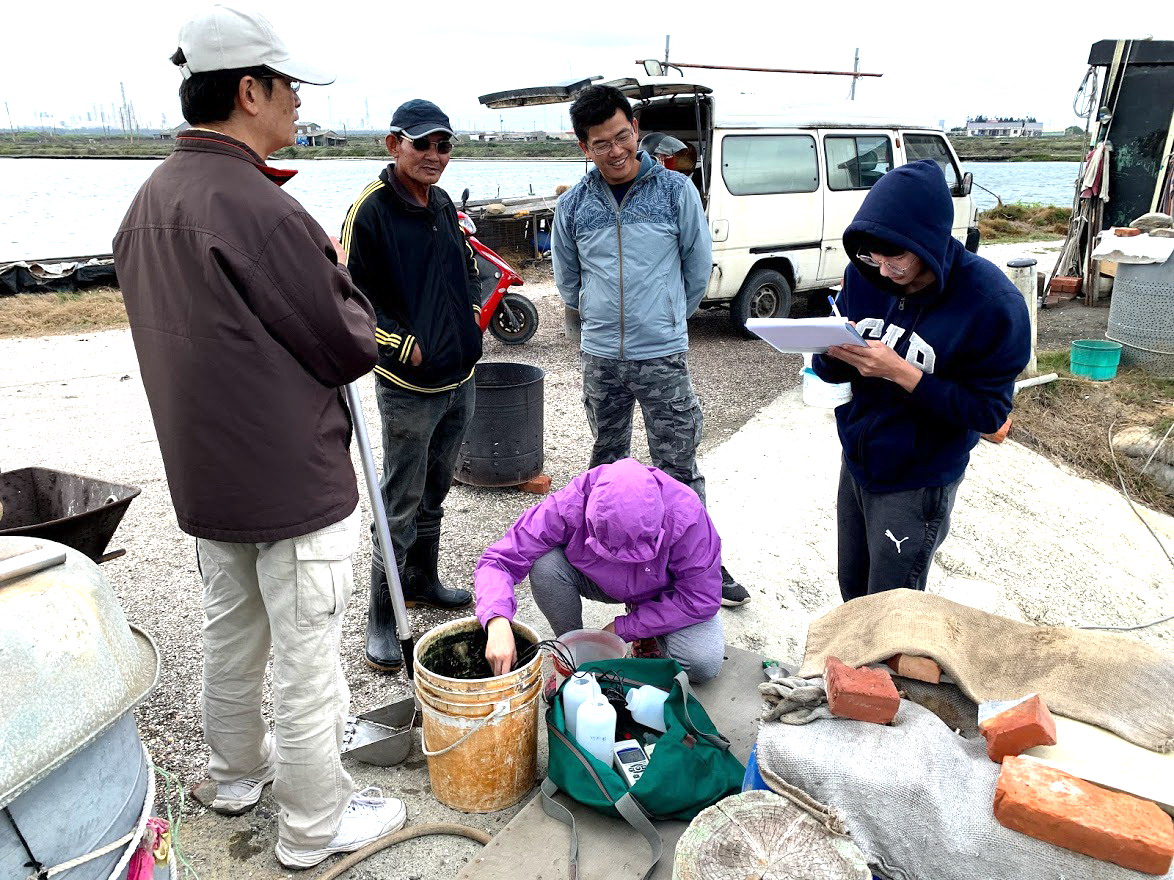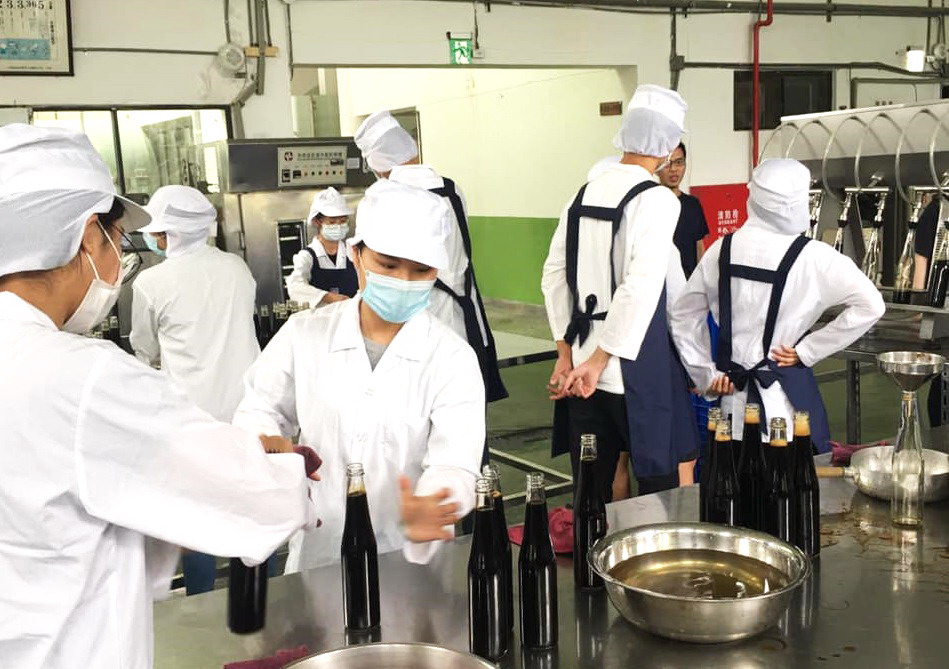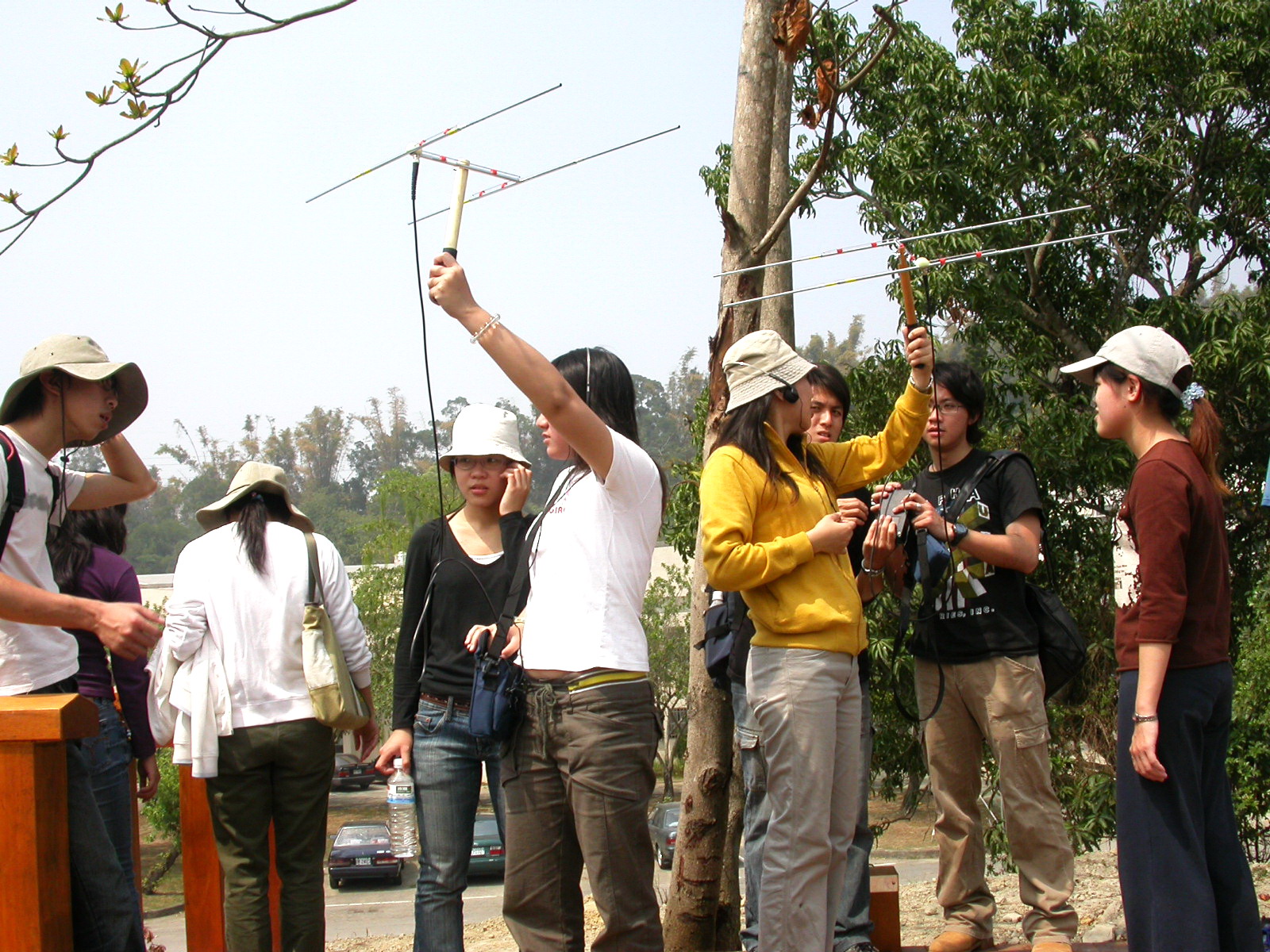 In pursuit of “healthy body”, “healthy life” and “healthy environment” with “health” as the central idea, the NCYU College of Life Sciences applies emerging biotechnology to ensure the coexistence and co-prosperity of diverse species in nature. The aim is to foster practice and academic research by cultivating professionals with enthusiasm for life sciences through innovative education. Seeing “professionalism and creativity, morality and service, and global vision” as basic values, the college is dedicated to three educational goals: (1) nurturing professionals who pursue excellence and innovation; (2) nurturing professionals with moral integrity, professional skills, and a concern in whole-person development; (3) nurturing professionals with awareness of ecological conservation and global vision. It is committed to cultivating students’ practical abilities through academic competitions and practical courses, as well as expanding students’ worldview by promoting international exchange and cooperation. In recent years, it has recruited a number of professional teachers in biotechnology and environmental ecology to form an interdisciplinary academic research team with research and development potential and practical capabilities. It is also proactive to facilitate the development of the biotech and health industry in Taiwan by offering guidance to biotech companies in the Yunlin-Chiayi-Tainan region.
In pursuit of “healthy body”, “healthy life” and “healthy environment” with “health” as the central idea, the NCYU College of Life Sciences applies emerging biotechnology to ensure the coexistence and co-prosperity of diverse species in nature. The aim is to foster practice and academic research by cultivating professionals with enthusiasm for life sciences through innovative education. Seeing “professionalism and creativity, morality and service, and global vision” as basic values, the college is dedicated to three educational goals: (1) nurturing professionals who pursue excellence and innovation; (2) nurturing professionals with moral integrity, professional skills, and a concern in whole-person development; (3) nurturing professionals with awareness of ecological conservation and global vision. It is committed to cultivating students’ practical abilities through academic competitions and practical courses, as well as expanding students’ worldview by promoting international exchange and cooperation. In recent years, it has recruited a number of professional teachers in biotechnology and environmental ecology to form an interdisciplinary academic research team with research and development potential and practical capabilities. It is also proactive to facilitate the development of the biotech and health industry in Taiwan by offering guidance to biotech companies in the Yunlin-Chiayi-Tainan region.
Department of Food Science to Ensure Food Safety and Health through Food Innovation
The Department of Food Science consists of the bachelor’s program, master’s program, doctor’s program, in-service master’s program and bachelor’s program in the division of continuing education. The faculty boasts expertise in four major areas: food processing and food engineering, food chemistry and analysis, nutrition and health food, and food microbiology and biotechnology. They embrace an educational philosophy that focuses on both theory and practice. In addition to strengthening the theoretical knowledge at the classroom, it offers experimental courses, factory practice, and short and long-term internship courses off campus. It allows the students to put theory into practice, thus reducing the education-job mismatch. Apart from research funding from government units, the faculty has been actively seeking industry-university cooperation projects to assist the food industry in solving problems and developing new products. They not only publish research and development results on internationally renowned journals, but commit themselves to technology transfer and patent acquisition. The faculty also encourages and advises students to participate in food-related skills certification and food technician examinations. In recent years, the average passing rate of the students in the food technician examination of the Ministry of Examination is around 10-15%. This bears witness to the remarkably effective teaching and learning the department’s teachers and students have shown in terms of food technology. After graduation, the students may seek jobs at private companies in the food-related industry; take civil service examinations for jobs in various departments of the public sector, ranging from agriculture, economics, food and drug management, to public health; or pursue further studies in life science and work in academic research institutions.
The Food Processing Pilot Plant affiliated to the department, which allows students to engage in food production, is a relatively large-scale internship factory compared with those under the food science departments of colleges and universities in Taiwan. The black bean yam oil, peanut gluten and red bean snacks produced by students during internship courses at the Food Processing Pilot Plant are sold at the NCYU Worker Cooperative. This enables the students to have a more comprehensive understanding of the food industry from production to sales.
Department of Aquatic Biosciences to Bridge the Gap between Fishery Academia and Industry: Connecting with the World and Developing a Global Perspective
The Department of Aquatic Biosciences aims to cultivate professionals in “fishery research” and “fishery practice in the industry.” In addition to basic fishery breeding, the department focuses on the key goals of: ornamental fish breeding and native fish conservation, special artificial feed and shellfish bait development, water environment and biological testing, and breeding technology using solar photovoltaic systems. Internship programs are offered throughout semesters and summer vacations to close the education-jobs gap and enhance students’ practical abilities. In terms of future employment, the students may participate in administrative civil service examinations in aquaculture and fishery, Advanced Examination for Aquacultural Technologists, special examinations for Level C Technician for Aquatic Breeding and other aquaculture-related examinations. The students who pass the examinations may serve in government agencies, fisheries research institutes, conservation institutions, acquarium parks, aquatic products inspection units, etc. They may apply for positions as teachers in maritime and fisheries schools after completing the education credit courses. They may also start their own business in aquaculture or related industries, or seek jobs at biotechnology companies or fishery-related companies/corporations. To facilitate international exchange, the department has been joining the international alliance of the Postgraduate (Master) Programme on Tropical Fisheries with International Linkage (ILP) since the academic year 2020-2021, where NCYU joins an alliance with 7 Asian schools including Kagoshima University in Japan and University of the Philippines Visayas. The department has been recommending graduate students to take courses and obtain a double master’s degree at the alliance universities on an annual basis. The undergraduate students may apply for scholarships to study at the Aquaculture Research Institute of the University of Idaho in the United States to enhance their competitiveness in the world.
Department of Biological Resources to Conserve Biodiversity and Ensure a Healthy and Sustainable Environment
The Department of Biological Resources is the first university-level department in Taiwan with the name of “Biological Resources.” The educational goal is to cultivate professionals in biological resources research, biodiversity conservation, environmental education and sustainable ecological industry. Its curriculum design integrates basic biology, ecological theory and fieldwork practice courses. Three module courses are provided: “Biodiversity,” “Biological Resources Management” and “Environmental Education and Ecological Industry.” To close the education-employment gap, it offers students with off-campus internship and visit courses, or career exploration seminars. The “Biodiversity Center” is established to provide students with opportunities to participate in biodiversity monitoring, natural ecological research, environmental ecological inspection, citizen science, removal of invasive alien species, conservation of rare species, habitat management and other sustainable development issues of global concern. “Environmental Education Interdisciplinary Program” and “Sustainable Water Environment Interdisciplinary Program” are established with a view to enhancing students’ interdisciplinary learning and employability. The programs provide training for the students to obtain the “Environmental Educator” certification from the Environmental Protection Administration of the Executive Yuan. It allows the students to have a clearer idea of the “Forward-Looking Water Environment Infrastructure Program” promoted by the government in recent years. The certified students may seek jobs in such fields as environmental education and ecological inspection after graduation. This year, there were 3 alumni who passed the the Civil Service Senior Examinations for the year 2020 in the domain of “Environmental Conservation,” which enabled them to contribute to environmental conservation in Taiwan. In addition, the department works with the Teacher Education Center in offering the course of “biological expertise in natural sciences.” This is designed for pre-service education of teachers of common subjects in junior high schools, which creates opportunities for the students to become junior high school teachers.
As the fragmented global environment, climate change, AI artificial intelligence and globalization are exerting an enormous impact on the natural ecological environment and industrial structure in Taiwan, the Department of Biological Resources is proactive to seek opportunities for academic exchange and cooperation with research units at home and abroad. It is also devoted to strengthening the links with environmental education and ecological industries, and training students to analyze the big data of the natural ecological environment. In conjunction with the government’s demand for sustainable agriculture and green energies such as wind power and photovoltaics, the department hopes to gradually enhance students’ participation in emerging ecological industries, and ability to investigate biological resource and check and assess the impact of environmental development. The faculty is dedicated to academic research and education on the ecological and social development issues related to the Yunlin-Chiayi-Tainan region. The ultimate goal is to train students to become all-round professionals in the ecological industry who contribute to natural ecology, environmental education and sustainable use of biological resources.
Department of Biochemical Science and Technology Working toward Precision Nutrition Medicine and Smart Health Technology
The plants play an important role in the health industry. Apart from the commonly known vitamins and minerals that provide essential nutrients for our bodies, the plants are rich in powerful plant compounds, which are key to maintaining human health. Due to the aging population in Taiwan, while pursuing longevity, the public begins to pay great attention to health, which boosts the research and development of healthcare supplements. Food shortages and extreme weather also drive the development of agricultural biotechnology. In an aging society, with the growth of population and economic development, there is an increase in the population with suboptimal health status, which brings new momentum to the biotechnology industry. To meet the global demand, the Department of Biochemical Science and Technology is committed to nurturing interdisciplinary professionals in biotechnology by offering courses on healthcare supplements, agricultural biotechnology and medical biotechnology in order to close the education-jobs gap.
The Department of Biochemical Science and Technology is dedicated to collaboration between academia and industries. Each year, students are selected to participate in important academic and industrial symposiums at home and abroad. Cooperative relations are established with the ANZAC Research Institute, Concord Repatriation General Hospital (Sydney, Australia), Iwate University (Japan), Chiayi Industry Innovation and Research Center, Chia-Yi Christian Hospital, Agricultural Research institute, and biotechnology companies in Taiwan and beyond. A set of comparison and test procedures for the effective ingredients of plant compounds has been developed to provide the inspection analysis and cell safety evaluation required by biotechnology companies or academic institutions located in the Yunlin-Chiayi-Tainan region. As a platform, it also contributes to the development of precision healthcare and personalized health management to meet the needs of the industry through technology transfer or academic-industrial cooperation. In addition to a professional faculty, the department also recruits teachers also appointed by the Academia Sinica and Adimmune Corporation. The faculty is devoted to developing plant compounds of immense potential through advanced research and development in technology. By delivering systematic learning with research and curriculum planning, the department hopes to cultivate students to become professionals with an international perspective and interdisciplinary capacity after graduation.
Department of Microbiology, Immunology and Biopharmaceuticals to Close Education- Employment Gap by Putting Medical Biotechnology Theories into Practice
Microbes are closely related to human life, in the forms of foods and alcoholic beverages fermented by lactic acid bacteria and yeasts, drugs such as antibiotics and anticancer drugs, and pathogens and viruses of diseases. In recent years, the scientific community has discovered the phenomenon of the gut-brain axis, in which the bacterial group in the intestine can affect how brain nerves work and thus regulate the physiological functions of humans. Certain diseases may also be related to the gut-brain axis. As the Coronavirus (Covid-19) pandemic is disrupting the world, vaccines against the virus have received great attention. If the body can recover after being exposed to the pathogen, there is a chance for antibodies to emerge and immunize the body. Immunity, which can be divided into humoral and cellular immunity, is the body’s weapon against pathogens. Vaccine development and administration are required to achieve passive immunity to pathogens that cause a high fatality rate or severe symptoms. Chinese herbal medicine is one of the major resources for the development of food, cosmetics, dietary supplements, biotechnology-based products and drugs. An understanding of the active natural products and pharmacological effects contained in them allows a fuller view of the Chinese herbal medicines’ efficacy. Due to limited output and efficacy of natural products, medicinal chemistry is designed to generate similar structural components via chemical synthesis. All the latest trends of technological development are highlighted in the educational goals of the department.
The Department of Microbiology, Immunology and Biopharmaceuticals aims to nurture professionals who contribute to research and development in such fields of microbiology, immunity, biomedicine, and biopharmacy. The curriculum is planned to train students to have a solid basic knowledge of microbiology, immunology, cell biology and biopharmacy, and to put theory to practice through practical courses. The elective courses, consisting of three professional course modules, are targeted to enhance students’ interdisciplinary skills in medical biotechnology product development, microbial product development and application, as well as competitiveness in basic research on cell biology and career development in the biomedical industry.
Its special programs include: “Drug Extraction and Activity Analysis,” a co-taught course offered by interdisciplinary teachers, where tea is used as the base to produce unprecedented tea products, characterized by special flavors and effects, by means of microbial fermentation; “Key Practice Competence in Microbial Immunity and Biopharmaceuticals,” an integrated course that requires students to put their knowledge in experimental technology learned over the four years in college into practice; “Life Science Research Project,” which requires students to select laboratories to pursue their individual research project with support from their supervisors based on their own interest in the fields of microbiology, immunity, and biomedicine. The goal is to cultivate students with remarkable abilities in both theory and practice, and the knowledge and techniques that meet the needs of the industry and academia. The diversity of practical courses allows the students to apply the knowledge and techniques they have learned in the classroom to research and biotechnology-based product development, thus closing the education-jobs gap.
   |